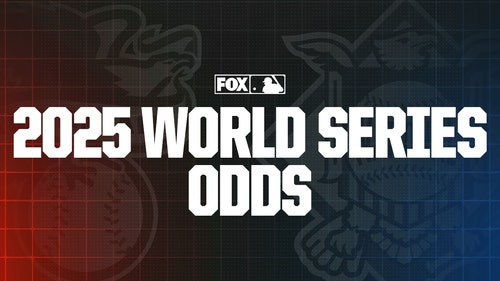Blue Jays adapt to new field dimensions after renovations make Rogers Centre more compact
TORONTO (AP) — The renovations at the Blue Jays' home ballpark have altered the field’s dimensions, with this year’s changes shrinking the foul areas at Rogers Centre after last year's initial phase, which brought in the outfield walls and made them higher.
Some of those reconfigured walls are parallel to the first- and third-base lines.
“It’s a little dangerous just because you have to know if you’re going to go into that wall how to collide with it,” Blue Jays outfielder Daulton Varsho said. “It happened to me the other day where if you go into the wall with your feet, there’s a good chance of spraining your ankle or hitting a really bad spot.
“You almost have to slide and then move your body so your body takes the hit into the wall.”
The first phase of the $400 million renovation focused on redoing the stadium’s upper bowl and creating new fan zones. As part of that, the left-center field wall was brought in by 7 feet to 368 feet and raised to 11 feet, 2 inches higher. The right-center field wall moved 16 feet closer to 359 and its height was raised to 14 feet, 4 inches higher.
The second phase reduced foul territory by about 3,000 square feet and walls were erected that run alongside the foul lines. Previously, there were low stands where outfielders could lean — sometimes into the laps of fans — to grab a foul ball. Installing those side walls and narrowing the foul territory has changed how outfielders like Varsho run to the ball.
“Balls hit coming down there, they’re going to hug that wall so it’s like you almost have to play goalie and be able to stop it,” said Varsho, noting it’s no longer possible to run a curving route toward the ball. “It’s just about being able to know what you need to get out there and be able to get to those baseballs.”
Davis Schneider, who plays in left field when Varsho is in center, said the new dimensions are something he’s had to adapt to in Toronto’s 15 home games this season.
“It’s such a short foul territory, you can’t run as hard into the wall or you have to make sure you play it differently than what you used to,” Schneider said. “Balls down the line, they’re not really going to kick out anymore, they’re either going to hit that wall and shoot back to the shortstop or they’re going to keep going to the wall so you have to play balls differently.”
The sharp corners and shorter distance to home result in changes to the way infielders play. It's possible for a hard-hit ball to ricochet back into the shallow part of the outfield. A shortstop has to move toward the outfield on a line drive to left field and, depending on where the baserunners are, the first or second baseman has to move toward right field to back up outfielders.
Isiah Kiner-Falefa, who has played at third base 18 times in 31 games for the Blue Jays this season, said he thinks Rogers Centre is now playing more like one of baseball’s cathedrals: Boston’s Fenway Park.
“It’s kind of similar to how you play the kick-off in Boston, it’s very similar,” Kiner-Falefa said. “But I enjoy it as a hitter. With less foul ground it helps a lot.”
There's some statistical evidence through 15 games that the new dimensions have changed what kind of hits are prevalent at the stadium.
Major League Baseball's online resource, Baseball Savant, tracks granular data on every pitch, swing and play throughout the season.
That includes park factors, a stat that compares every MLB stadium on different statistics like singles, extra-base hits, home runs, strikeouts, runs, and more complex stats like BACON (batting average on contact, including home runs). A park factor score of 100 means the stadium is average compared to all the other ballparks in the league. A higher number means it has a higher frequency of a specific stat than other venues and a lower number means it’s a more rare occurrence.
Historically, Rogers Centre has been a home run hitters’ park, with a score at or above average 19 times between 1998 and 2022. But after the walls were moved in and heightened in 2023, its rating dropped to 95. It currently has a 94 park factor for home runs.
Singles, however, are significantly more commonplace.
In the 26 seasons Baseball Savant has tracked park factors, Rogers Centre has only been above average for singles three times, reaching a modest score of 101 in 2004, 2005, 2022. So far this season, it’s at an all-time high of 111. Hits in general are also up, with a current park factor rating of 109, four points higher than the previous high of 105 in 2003.
___
AP MLB: https://apnews.com/hub/mlb









